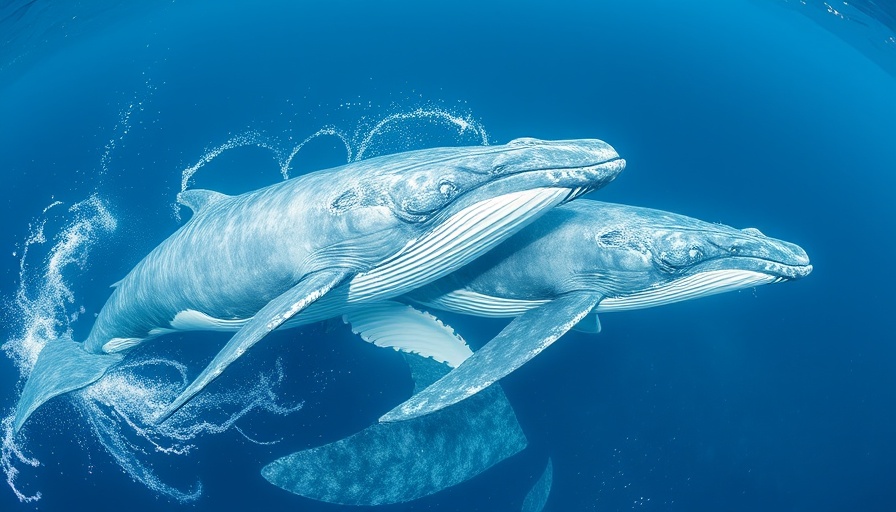
Understanding the Whale Strikes Dilemma
Every year, the marine ecosystem faces significant threats from the actions of human maritime activity, particularly from commercial vessels. One of the most critical yet often overlooked issues is whale strikes. These incidents not only lead to fatalities among these majestic creatures but can also have severe implications for biodiversity and marine health. Fathom Science Inc is harnessing innovative technology to address this challenge, aiming for a future where maritime navigation becomes safer for both humans and marine life.
Fathom Science's Innovative Approach to Predicting Whale Strikes
Utilizing advanced data analytics and artificial intelligence, Fathom Science Inc has developed a robust model to predict whale strikes based on various parameters including vessel speed, whale migration patterns, and weather conditions. By integrating these factors, the company provides actionable insights for shipping companies. This proactive stance can significantly decrease the occurrence of collisions by enabling vessels to adjust their routes and speeds accordingly.
The Importance of Protecting Marine Biodiversity
Preventing whale strikes is not just about protecting individual species; it ultimately contributes to safeguarding entire marine ecosystems. Each whale plays a crucial role in maintaining the ecological balance of ocean habitats. By ensuring safer navigation, maritime stakeholders contribute to conservation efforts, promoting healthy oceans that are fundamental to planetary health.
Lessons from Other Industries: A Parallel Example
Similar to how the automotive industry uses advanced collision-avoidance systems and predictive analytics to prevent accidents, maritime operations can adopt comparable strategies to enhance safety for marine life. Companies like Tesla have proven that technology can significantly lower accident rates, paving the way for a more responsible future in transportation.
Future Predictions: The Road Ahead for Marine Safety
As technology advances, the integration of AI and machine learning in monitoring environmental conditions will become increasingly sophisticated. We can expect smarter shipping routes that dynamically change based on real-time data, further minimizing the risk of whale strikes. Moreover, as regulatory frameworks evolve, there will be greater incentives for shipping companies to adopt these novel solutions, driving industry-wide change.
Making Informed Decisions in the Marine Industry
For business owners and professionals in maritime operations, understanding the implications of whale interactions is crucial. By investing in predictive analytics tools like those from Fathom Science, companies can enhance their environmental reputation while adhering to regulations and safeguarding marine life. This not only reflects corporate responsibility but attracts environmentally conscious consumers.
Call to Action: Join the Movement
We must collectively work toward a sustainable future where technology aids in preserving our natural world. Professionals and business owners in the marine sector are encouraged to explore innovative technologies like those offered by Fathom Science. It’s time to take responsibility and implement solutions that protect our oceans and the magnificent creatures that inhabit them.
Summary
By proactively addressing whale strikes through advanced technology and analytics, Fathom Science Inc exemplifies innovation that benefits both the maritime industry and marine conservation. As organizations implement more proactive strategies, the future of our oceans looks increasingly promising.
 Add Row
Add Row  Add
Add 




Write A Comment